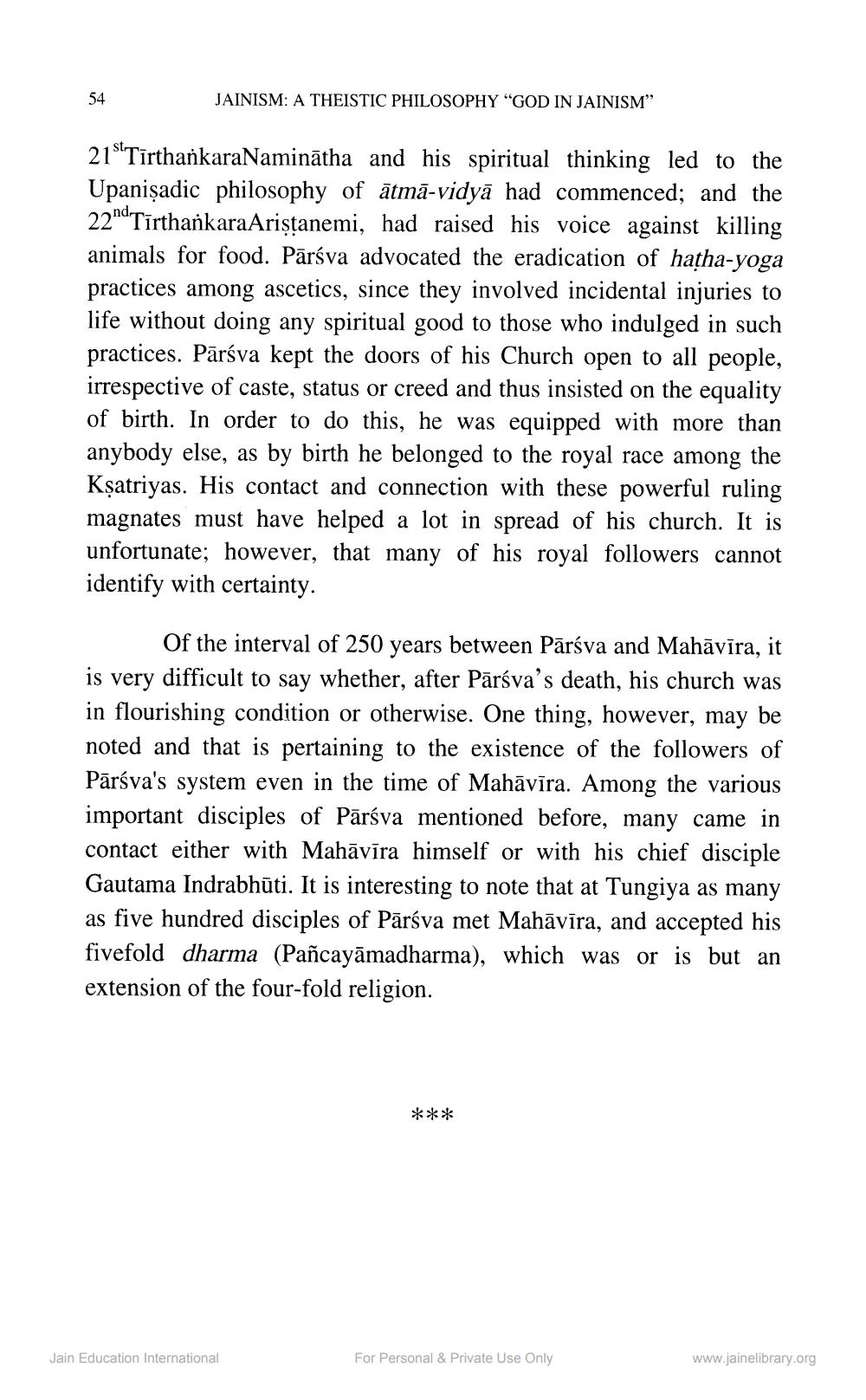________________
54
JAINISM: A THEISTIC PHILOSOPHY "GOD IN JAINISM"
21STīrthankaraNaminātha and his spiritual thinking led to the Upanișadic philosophy of ātmā-vidyā had commenced; and the 22ndTīrthankaraAristanemi, had raised his voice against killing animals for food. Pārsva advocated the eradication of hatha-yoga practices among ascetics, since they involved incidental injuries to life without doing any spiritual good to those who indulged in such practices. Pārsva kept the doors of his Church open to all people, irrespective of caste, status or creed and thus insisted on the equality of birth. In order to do this, he was equipped with more than anybody else, as by birth he belonged to the royal race among the Kșatriyas. His contact and connection with these powerful ruling magnates must have helped a lot in spread of his church. It is unfortunate; however, that many of his royal followers cannot identify with certainty
Of the interval of 250 years between Pārśva and Mahāvīra, it is very difficult to say whether, after Pārsva's death, his church was in flourishing condition or otherwise. One thing, however, may be noted and that is pertaining to the existence of the followers of Pārsva's system even in the time of Mahāvīra. Among the various important disciples of Pārsva mentioned before, many came in contact either with Mahāvīra himself or with his chief disciple Gautama Indrabhūti. It is interesting to note that at Tungiya as many as five hundred disciples of Pārśva met Mahāvīra, and accepted his fivefold dharma (Pañcayāmadharma), which was or is but an extension of the four-fold religion.
***
Jain Education International
For Personal & Private Use Only
www.jainelibrary.org




